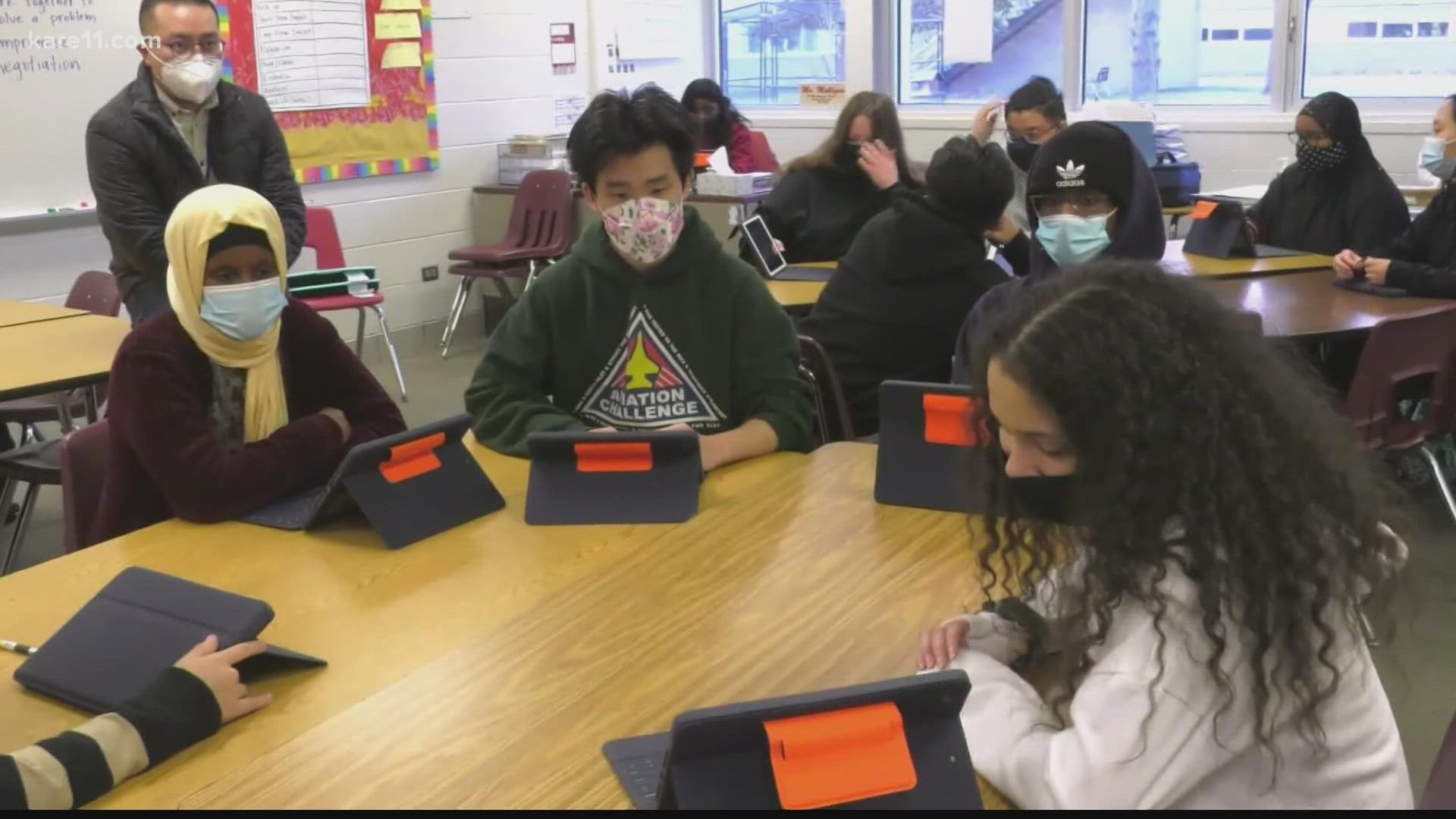ST PAUL, Minn. — This year's freshman class in Saint Paul Public Schools will be required to take at least one ethnic studies course before they graduate in 2025.
The St. Paul School Board voted December 14 to make Critical Ethnic Studies class, now being taught as a pilot class, a permanent addition to the required curriculum. The concept is to incorporate multiple academic disciplines, including English language arts, social studies, art, and the humanities.
"It’s a culturally responsive way of teaching students, that, for the first time, in a very intentional way puts students' lives, their culture, their knowledge, their lived experiences at the center of the curriculum," Chong Yang, an English teacher who has been leading the pilot classes at Como Park High, told KARE.
Yang said her course reviews parts of history that have contributed to the disparities that still exist in society, and encourages students to take stock in what they bring to the world.
"It's a way to have students examine their own identity, their own heritage, their culture, their communities. And we call it 'critical' because we look at those elements in relation to various power structures, forms of oppression and inequities that could impact their lives."
For example, one lesson delves into government-sanctioned "redlining" -- maps of where federally guaranteed mortgage loans couldn't be made for decades. The practice reverberated through generations and contributed to Minnesota's pronounced housing ownership gap.
Students also learned about covenants attached to deeds, which sectioned off parts of the city where lots couldn't be sold to persons who were Black, Native American, Latino and Asian.
"We look at redlining, we look at Mapping Prejudice through the U of M, we look at the TPT documentary of 'Jim Crow of the North.' But then we also come back to our back yard, which is the Rondo neighborhood," Yang explained, noting that some of her students live in Rondo, an African American neighborhood that was split in half by the construction of Interstate 94.
RELATED: When home prices soar, a community-based land trust helps keep them affordable for first-time buyers
Yang said the pilot course shouldn't be confused with the field of scholarly study known as Critical Race Theory, which has become a lightning rod for conservatives across the nation. But she said it does intersect in many ways with CRT.
"I see it as just a tool, but as a tool for my students to understand the world that they live in. It isn’t to divide. If anything, it’s to unite. It’s to create community," Yang remarked.
"They can feel empowered to say, 'Wow! This is why it happened! This is what happened in history.'"
Yang, who was born in Laos, spent part of her childhood in the Ban Nam Yao refugee camp in Thailand in the years after the Vietnam War. She said when her family arrived in St. Paul, she felt compelled to fit into American society.
"I had a sense of inferiority, a sense of shame, self-loathing. I never talked about my culture. I tried to appear as normal as all my classmates," Yang recalled.
She wants to spare her students those feelings by encouraging them to speak freely about who they are and how life has been for them.
"I like students to bring their culture into the classroom, their knowledge, their family knowledge. And I treat that as knowledge!"
Statewide picture
The Minneapolis School Board voted in 2020 to add an ethnic studies graduation requirement, also beginning with the Class of 2025.
The Minneapolis Dept. of Education can't dictate curricula but does set standards. The MDE is currently in the process of setting new social studies benchmarks -- the minimum knowledge students are expected to master in that subject area.
The published draft version includes the following language about ethnic studies:
A. Identity: The student will analyze the ways power and language construct the social identities of race, religion, geography, ethnicity, and gender. The student will apply understandings to one's own social identities and other groups living in Minnesota, centering on stories and histories that have been marginalized, erased, or ignored.
B. Resistance: The student will describe how individuals and communities have fought for freedom and liberation against systemic and coordinated exercises of power locally and globally, identify strategies or times that have resulted in lasting change, and organize with others to engage in activities that could further the rights and dignity of all.
C. Ways of Knowing and Methodologies: The student will use ethnic and Indigenous studies methods and sources to understand the roots of contemporary systems of oppression and apply lessons from the past in order to eliminate historical and contemporary injustices.
Watch more Minnesota politics:
Watch the latest political coverage from the Land of 10,000 Lakes in our YouTube playlist:

